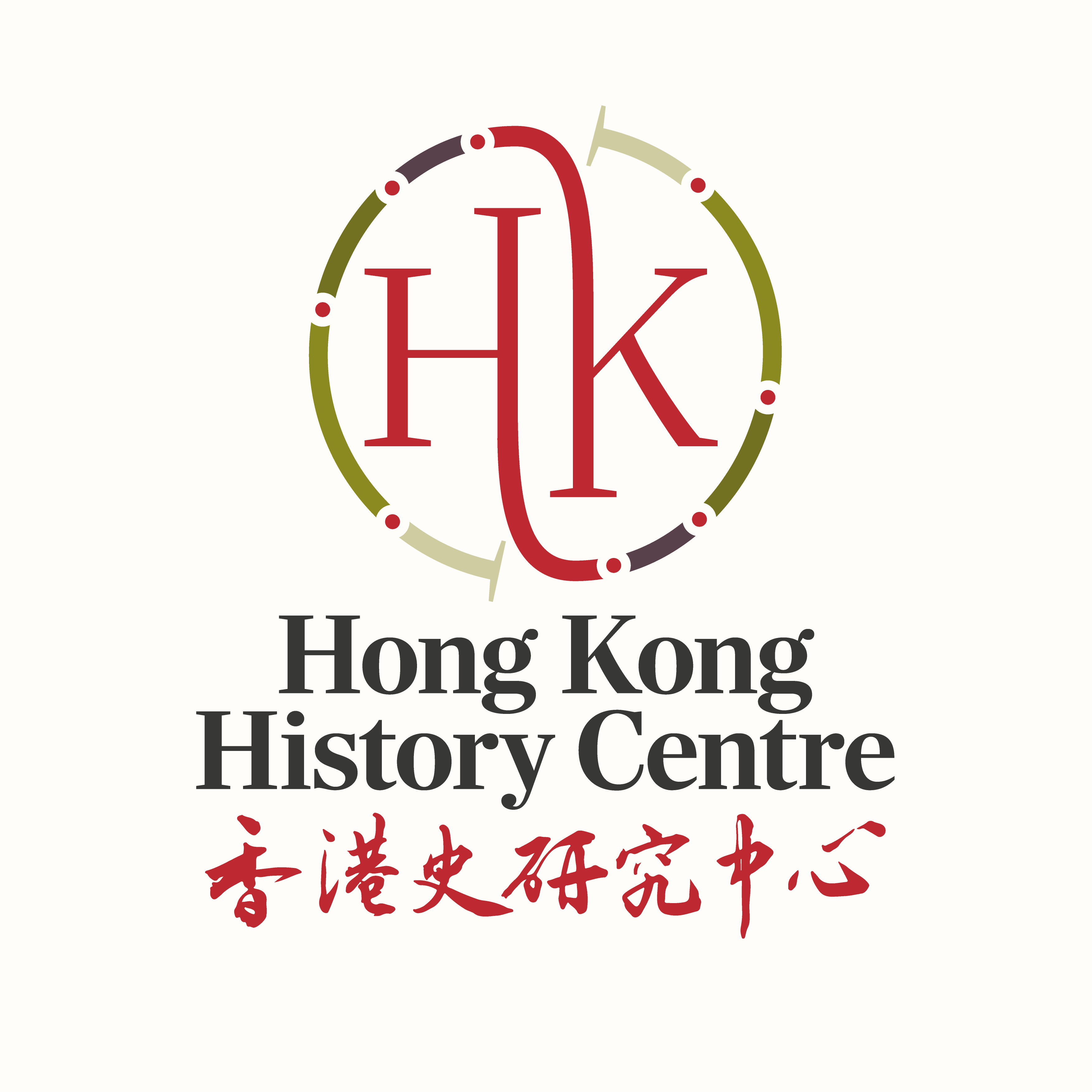
Have you heard about Tai Ping Theatre in Western District? It was in fact a landmark building in Hong Kong movie business, and also a major venue for Cantonese traditional opera performance for artists in Hong Kong and Guangdong. In …
01/05/25
When did western suits become popular in Hong Kong? What are the historical and social implications behind this change of dress code? Dr. Katon Lee of Hong Kong Baptist University will share with us his insights on these issues in …
01/05/25
What is digital history? What is the role of Hong Kongers in the Battle of Hong Kong in 1941? Why does Chi Man fall in love with military history?
Dr. Kwong Chi Man, Hong Kong Baptist University, shares with us …
01/05/25
We talk to Dr. Vivian Kong, Co-Director of Hong Kong History Centre. She shares with us her career trajectory and her latest work on the multifaceted nature of the Hong Kong-UK bonding.
第一集,我們訪問了香港史研究中心聯合總監江偉欣博士。江博士與我們分享她的學術經歷,更闡述她對香港人親英情意結歷史軌跡的研究成果。
Hong Kong History Centre and Society for …
01/05/25
Panel on ‘History education beyond classroom’
Video 3:
Angus Hui
The Lost D-Day Story Found In Hong Kong
Hong Kong and Normandy
「課室以外的歷史教育」主題
講者三:
許創彥
在香港尋回的「諾曼第登陸」故事
香港的「諾曼第登陸」故事
Hong Kong History Centre, Society for Hong Kong Studies, and the Hong Kong …
01/05/25
Panel on ‘History education beyond classroom’
Video 2:
Hiuman Lam
Hong Kong Reminiscence
‘Heritage and Social Media’
「課室以外的歷史教育」主題
講者二:
林曉敏
香港遺美
社交媒體與歷史知識推廣
Hong Kong History Centre, Society for Hong Kong Studies, and the Hong Kong Institute of Humanities and Social …
01/05/25
Panel on ‘History education beyond classroom’
Video 1:
Reynold Tsang
The University of Hong Kong
‘History of Local Museums’
「課室以外的歷史教育」主題
講者一:
曾啓泓
香港大學
本地博物館歷史
Hong Kong History Centre, Society for Hong Kong Studies, and the Hong Kong Institute of Humanities …
01/05/25
Panel on Medical History
Video 2:
Ria Sinha
The University of Hong Kong
‘Posters and Post-war health transformation’
「醫療發展」主題
講者二:
Ria Sinha
香港大學
從海報看醫療制度演變
Hong Kong History Centre, Society for Hong Kong Studies, and the Hong Kong Institute of Humanities …
01/05/25
Panel on Medical History
Video 1:
Kelvin Chan
University of Bristol
‘Chinese Medicine in Post-War Hong Kong’
「醫療發展」主題
講者一:
陳雋琦
布里斯托大學
戰後的中醫業
Hong Kong History Centre, Society for Hong Kong Studies, and the Hong Kong Institute of Humanities and Social …
01/05/25
Panel on Connecting Hong Kong: Ideas and Space
Video 3:
Allan Pang
University of Bristol
‘Children’s Magazines across Borders’
「聯繫香港:地域與文化」主題
講者三:
彭得豐
布里斯托大學
跨越國界的兒童雜誌
Hong Kong History Centre, Society for Hong Kong Studies, and the Hong Kong Institute of Humanities …
01/05/25Have you heard about Tai Ping Theatre in Western District? It was in fact a landmark building in Hong Kong movie business, and also a major venue for Cantonese traditional opera performance for artists in Hong Kong and Guangdong. In …
01/05/25When did western suits become popular in Hong Kong? What are the historical and social implications behind this change of dress code? Dr. Katon Lee of Hong Kong Baptist University will share with us his insights on these issues in …
01/05/25What is digital history? What is the role of Hong Kongers in the Battle of Hong Kong in 1941? Why does Chi Man fall in love with military history?
Dr. Kwong Chi Man, Hong Kong Baptist University, shares with us …
01/05/25
We talk to Dr. Vivian Kong, Co-Director of Hong Kong History Centre. She shares with us her career trajectory and her latest work on the multifaceted nature of the Hong Kong-UK bonding.
第一集,我們訪問了香港史研究中心聯合總監江偉欣博士。江博士與我們分享她的學術經歷,更闡述她對香港人親英情意結歷史軌跡的研究成果。
Hong Kong History Centre and Society for …
01/05/25
Panel on ‘History education beyond classroom’
Video 3:
Angus Hui
The Lost D-Day Story Found In Hong Kong
Hong Kong and Normandy
「課室以外的歷史教育」主題
講者三:
許創彥
在香港尋回的「諾曼第登陸」故事
香港的「諾曼第登陸」故事
Hong Kong History Centre, Society for Hong Kong Studies, and the Hong Kong …
01/05/25Panel on ‘History education beyond classroom’
Video 2:
Hiuman Lam
Hong Kong Reminiscence
‘Heritage and Social Media’
「課室以外的歷史教育」主題
講者二:
林曉敏
香港遺美
社交媒體與歷史知識推廣
Hong Kong History Centre, Society for Hong Kong Studies, and the Hong Kong Institute of Humanities and Social …
01/05/25Panel on ‘History education beyond classroom’
Video 1:
Reynold Tsang
The University of Hong Kong
‘History of Local Museums’
「課室以外的歷史教育」主題
講者一:
曾啓泓
香港大學
本地博物館歷史
Hong Kong History Centre, Society for Hong Kong Studies, and the Hong Kong Institute of Humanities …
01/05/25Panel on Medical History
Video 2:
Ria Sinha
The University of Hong Kong
‘Posters and Post-war health transformation’
「醫療發展」主題
講者二:
Ria Sinha
香港大學
從海報看醫療制度演變
Hong Kong History Centre, Society for Hong Kong Studies, and the Hong Kong Institute of Humanities …
01/05/25Panel on Medical History
Video 1:
Kelvin Chan
University of Bristol
‘Chinese Medicine in Post-War Hong Kong’
「醫療發展」主題
講者一:
陳雋琦
布里斯托大學
戰後的中醫業
Hong Kong History Centre, Society for Hong Kong Studies, and the Hong Kong Institute of Humanities and Social …
01/05/25Panel on Connecting Hong Kong: Ideas and Space
Video 3:
Allan Pang
University of Bristol
‘Children’s Magazines across Borders’
「聯繫香港:地域與文化」主題
講者三:
彭得豐
布里斯托大學
跨越國界的兒童雜誌
Hong Kong History Centre, Society for Hong Kong Studies, and the Hong Kong Institute of Humanities …
01/05/25